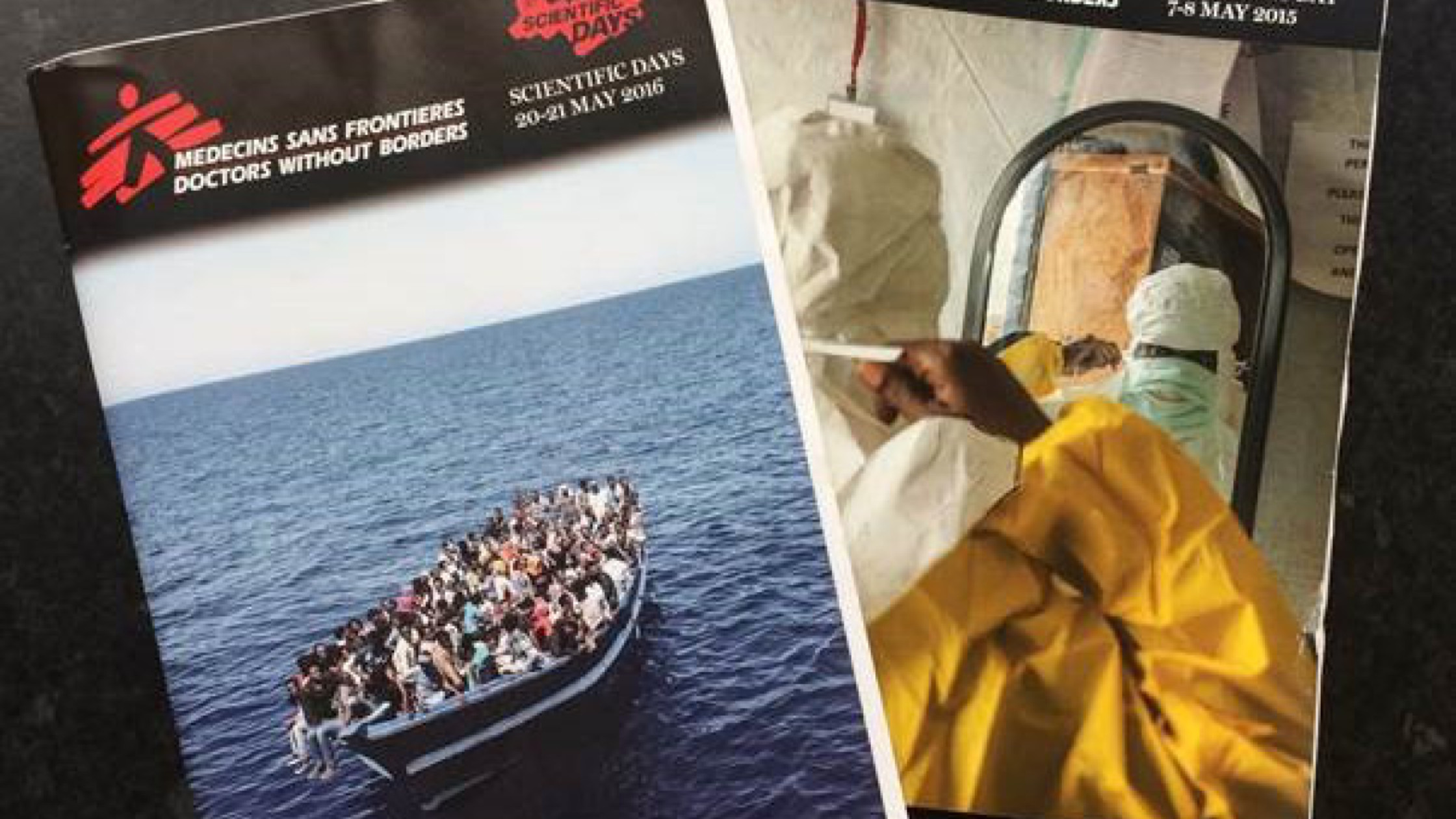MSF Scientific Days: An Opportunity to Think Critically and Do Better
Paul Simpson, Deputy Editor of PLOS Medicine, looks forward to the upcoming Médecins Sans Frontières/Doctors Without Borders (MSF) Scientific Days Conference (May 19-20)
Those interested in medical humanitarian research may well be heading to London next week (or be logging into the free live stream) to attend MSF’s Scientific Days conference. I’ve been a regular attendee for several years now and for the last two years I’ve served on the editorial committee for the medical research half of the conference.
One reason why I enjoy this conference is that it provides an injection of context that is sometimes missing for an armchair global health enthusiast such as myself. Research in difficult and chaotic circumstances can, unsurprisingly, lead to research studies of varying quality. An organization of passionate humanitarians split between several operational centres can struggle with agreeing priorities. Yet, despite these challenges, the unifying mission of MSF is to save lives and provide care, and the conference offers the opportunity to reflect on how doing better research can achieve this. There is certainly no shortage of opinionated and critical thinkers.
Spend a bit of time talking to attendees over coffee at the break (or with a pint in the Phoenix after the conference) and you’ll hear about the messy reality of doing research in an emergency and the questions that this enterprise raises: Should more qualitative research be done? Should control arm studies be implemented? Are there too many retrospective studies? What’s the difference between innovation and research? What level of evidence is needed to guide change? Are we acting ethically? Are we studying the right things?
Even better than pontificating in the pub, the conference provides a platform to address these problems even if the answers are not straightforward or perfect. The inclusion of “humanitarian innovation” in the conference led to the recognition of the need for an ethical framework for innovation projects (even if the boundary between innovation and research projects is a little hard to define, for me at least). This year features a round table discussion on “getting and using data from emergency settings”. At first pass this may seem like a dry topic but it is the bedrock on which good research is done and without addressing it there is a danger of being left with the adage: garbage in, garbage out. I hope that the need for prospective design and data collection is addressed in this session.
The conference has an excellent record in attracting compelling keynote speakers. Zaher Sahloul’s keynote describing the manmade disaster in Syria is as relevant now as it was last year; Hans Rosling, who sadly passed away earlier this year, provided a memorable lecture in 2013 (complete with a heart stopping moment where he climbed onto a table); and the conference organizers have in the past been brave enough to give the lectern to a rapper… that’s right, a rapper gave a keynote. This year’s keynote speakers, Jemilah Mahmood and Peter Redfield, may not give their lectures in rhyming couplets but they are likely to be as compelling as previous speakers.
The MSF Scientific Days conference is on the 19th and 20th May at the Royal Society of Medicine in London. Further information about the agenda and how to watch online can be found here: https://www.msf.org.uk/content/msf-scientific-days
I hope to see you there (or in The Phoenix)
Competing Interests: I served on the Editorial Committee for this year’s meeting and PLOS Medicine is a sponsor of the conference.
Featured image credit: MSF
